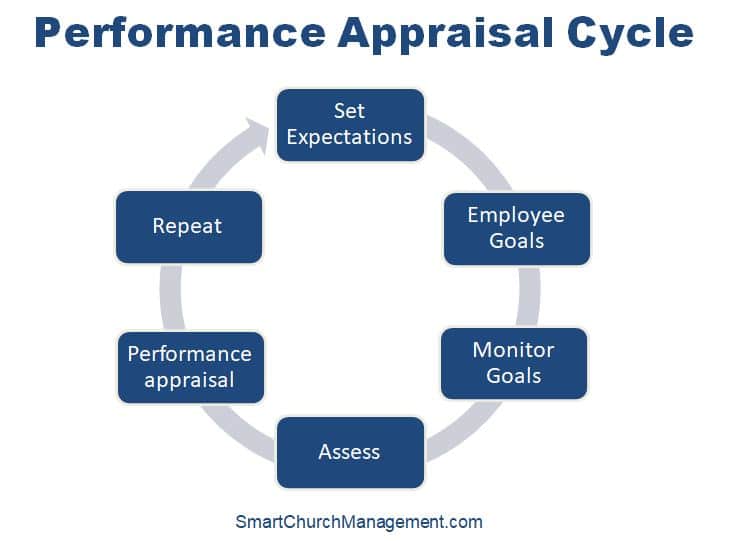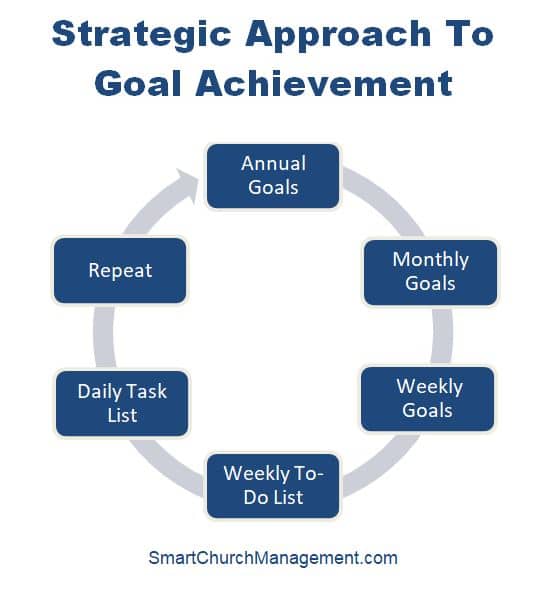Estimated reading time: 5 minutes
Churches grow, advance, and achieve more when they are intentional with their planning efforts.
Most love to dream about what could be. However, dreaming and doing are two very different skill sets. Doing so requires a strategic planning process that results in a plan to get it done.
After we translate our church dreams into a strategy and plan, we need to make sure that plan is implemented. Implementation is much easier said than done.
Let’s be honest, churches are busy places, and life happens. You can have the best plan, but when a church family is dealing with a crisis, the church stops to help. Isn’t that what we are there for?
This unique phenomenon in ministry makes it difficult to balance the day-to-day job responsibilities with achieving church goals.
How To Achieve Strategic Goals
Churches grow and advance to the next level by achieving objectives determined by a strategic planning process.
These objectives are articulated through well-written church goals that are disseminated throughout the organization.
However, there needs to be a strategic approach to ensure goals are accomplished.
The first step is to develop a performance management process that incorporates goal achievement into the employee performance appraisal cycle. This critical cycle is then tied to pay incentives.

Employees come to work with the intention of doing a good job. It is the manager’s responsibility to guide them through the process and help them prioritize their work.
It is all about reinforcing good performance by rewarding employees for doing those things that help to meet objectives and implement the strategy.
The next step is figuring out a way to break annual church goals down into sizable tasks that can be incorporated into daily employee responsibilities.
Let’s look at this graphic as an example.

As you can see in this graphic, annual goals require several steps. And each step works toward the completion of that goal.
Now, let’s look at an example annual goal for a church and break it down into each of these steps.
Global Church Goal: Transition all media – video, audio, and print – to the digital format by December 31, 20XX.
1. Example Human Resources Departmental Annual (SMART) Goal: Scan all human resource archive files (120 files) to confidential digital file format no later than December 31, 20XX.
If you have ever had to facilitate a process of digitizing materials, you understand that it is laborious and time-consuming. Breaking this massive task down into bite-sized pieces makes it less overwhelming for the person responsible for getting it done.
2. Monthly Goal: Scan ten human resource files and save them in confidential digital format each month of 20XX.
Scanning 10 files a month seems manageable compared to the 120 files that need to be done.

3. Weekly Goal: Scan 2-3 human resource files and save them in a confidential digital format each week of the month.
A manageable weekly goal of 2-3 files makes the job much easier to manage.
4. Weekly To Do List: Scan 2-3 files to a digital format.
5. Daily Task List: Select one day of the week to work on this project. Create the task list, go through them, and enjoy checking those files off of the list.
- Create a list of files to scan.
- Pull three archived human resource files from archive storage.
- Scan the file and save it in a confidential digital file.
- Open the file to ensure all documents were scanned clearly and correctly.
- Ensure the file is backed up on the cloud server.
- Mark the file off of the list.
- Shred file.
Breaking The Goal Into Weekly
Tasks Make It Easier To Achieve!
Looking at this example, it is easy to imagine how the tedious task of scanning documents could quickly be put on the back burner and not get accomplished.
Or the goal may end up being delayed so long that it needs to be done quickly at the end of the goal period.
Take goals that are time-consuming and break them down into small actionable steps. This systematic process can help to facilitate achieving goals one small step at a time. It also eliminates the stress of trying to accomplish many steps all at once.
Goals Are Important For Growth
Whether your organization is a church, non-profit, or the dry cleaners down the street, achieving goals is important to meeting long-term objectives.
Taking the time to write goals and hold people accountable for achieving them is how successful organizations move to the next level.
When is the last time your church used a systematic approach to getting things done?
Learn more tips for managing your church by taking our Fundamentals of Church Administration Course! Receive a certificate in church administration for as little as $149!



